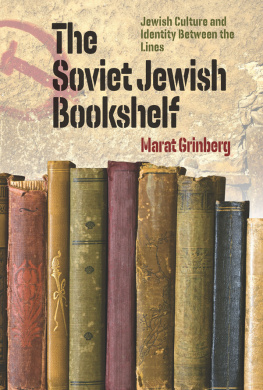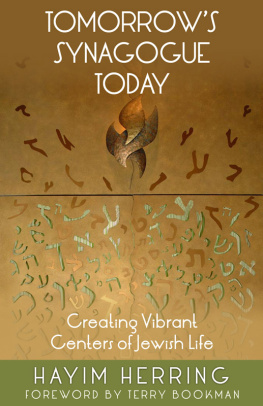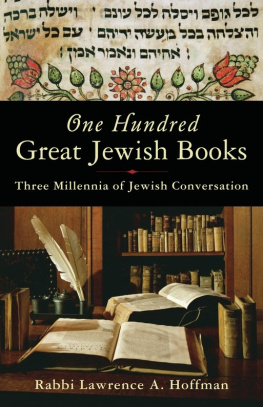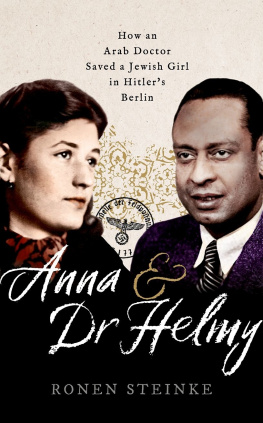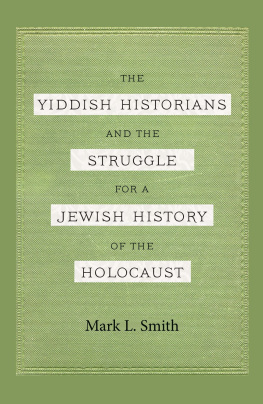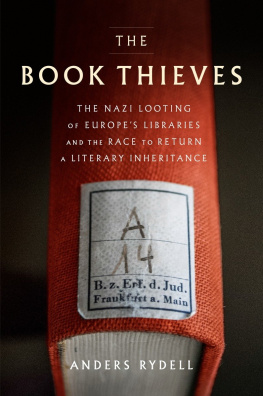
A genuine page-turnerwritten with engaging prose and heartfelt passion.... As Rabbi Mark Glickman artfully reminds us, books are ultimately the couriers of human civilization. In their redemption we keep faith with our past and sustain hope in our future.
Gary P. Zola, executive director of the Jacob Rader Marcus Center of the American Jewish Archives at Hebrew Union CollegeJewish Institute of Religion
[This is] a compelling and emotionally powerful story.
Daniel M. Bronstein, historian and contributor to The Cambridge Dictionary of Jewish History, Religion, and Culture
A little-known story powerfully told, Stolen Words kept me on the edge of my seat.
Aaron Lansky, president of the Yiddish Book Center and author of Outwitting History: The Amazing Adventures of a Man Who Rescued a Million Yiddish Books
A wonderfully written book about an extremely important event in history, neglected until now: the loss and retrieval of Jewish cultural treasures during the Holocaust.
David E. Fishman, professor of Jewish history at Jewish Theological Seminary and senior research scholar at YIVO Institute for Jewish Research
Stolen Words
Burnt Pearls
It is not just because my words quiver
Like broken hands grasping for aid,
Or that they sharpen themselves
Like teeth on the prowl in darkness,
That you, my written word, substitute for my world,
Flare up the coals of my anger.
It is because your sounds
glint like burnt pearls
discovered in an extinguished pyre
and no onenot even Ishredded by time
can recognize the woman drenched in flame
for all that remains of her now
are those grey pearls
smoldering in the ash.
Abraham Sutzkever, Vilna Ghetto, July 28, 1943
Stolen Words
The Nazi Plunder of Jewish Books
Mark Glickman

The Jewish Publication Society | Philadelphia
University of Nebraska Press | Lincoln
2016 by Mark Glickman
Cover image is from the interior
Author photo courtesy of author
All rights reserved. Published by the University of Nebraska Press as a Jewish Publication Society book.
Thanks to Dr. Ben Outhwaite for assistance with photo 8.
Many thanks to Anne Graham, senior computer specialist of the University of Washington Libraries Digital Initiatives Program, for scanning images for figure 10.
Thanks to Gisele Levy and Carlo di Cave of the Unione delle Comunit Ebraiche Italiane for their cooperation in getting photo 17.
Library of Congress Cataloging-in-Publication Data
Glickman, Mark, 1963-author.
Stolen words: the Nazi plunder of Jewish books / Mark Glickman.
pages cm
Published by the University of Nebraska Press as a Jewish Publication Society book-Title page verso.
Includes bibliographical references and index.
ISBN 978-0-8276-1208-2 (cloth: alk. paper)
ISBN 978-0-8276-1276-1 (epub)
ISBN 978-0-8276-1277-8 (mobi)
ISBN 978-0-8276-1278-5 (pdf)
1. Jewish librariesEuropeHistory20th century. 2. LibrariesDestruction and pillageEuropeHistory20th century. 3. Libraries and national socialism. I. Title.
Z 675. J 4 G 55 2016
027.04dc23
2015031831
The publisher does not have any control over and does not assume any responsibility for author or third-party websites or their content.
For my parents
Ron and Sharon Glickman,
Harriet and Joel Katz, and Vicki Nelson,
who have taught me to bask in the paradise of books.
Contents
During the months Ive spent working on this book, I have been blessed with support from many wonderful individuals, and Im grateful to them all.
I thank Phil Hanrahan, an editor with the uncanny ability to look into the mire of my early drafts and find within them the stories I want to tell and the ways I want to tell them. The faults of this book are, of course, my own, but its merits bear the indelible imprint of Phils incredible handiwork.
I am also grateful to Rabbi Barry Schwartz, director of The Jewish Publication Society, whose early enthusiasm and ongoing support for this project were indispensable in bringing this book to publication. Thanks also to JPS managing editor Carol Hupping for her invaluable guidance and unending forbearance; to Ann Baker, managing editor of the University of Nebraska Press and project editor of this book; and the amazing copy editor Debra Corman, without whose keen eye and skilled craftsmanship this book would never have become ready for print.
There were also many individuals who willingly shared their time and insights with me and without whose contribution this book would not have been possible. Heartfelt thanks to Michael Strong, my good friend and invaluable guide to all things books; Robert Ericksen, of Pacific Lutheran University; Devin Naar, of the University of Washington; Aaron Lansky, director of the Yiddish Book Center in Amherst MA ; Chaya and Jay Pomrenz; Eli Genauer, Jewish book maven extraordinaire; Walter Lachman; Ursula Behr; Marie Luise de Vries; Jacob Glickman; Shoshana Glickman; David Gilner, of the Hebrew Union CollegeJewish Institute of Religion; Lydumila Sholokhova, of YIVO ; Shoshana Baron Tancer; Corina Remes; Dario Tedeschi; Gisle Lvy and Carlo di Cave of the Unione delle Comunit Ebraiche Italiane; and Ann Brener, of the Library of Congress. I owe special thanks to Patricia Kennedy Grimsted, of Harvard University, and to Dana Herman, of the American Jewish Archives, both of whom regularly and enthusiastically made themselves available to me and the constant barrage of questions I threw their way.
I am deeply grateful to Charles Knapp and the Knapp Family Foundation for their generous support of this project, as well as to the many private donors who helped make its publication possible.
Words cannot adequately express how grateful I am to my parentsRon and Sharon Glickman, Harriet and Joel Katz, and Vicki Nelsonfor their ongoing love and support.
I am especially grateful to my childrenShoshana, Jacob, Kyleigh, and Taylorfor making it all worthwhile.
And above all, thanks to my wife, Caronmy life-partner, my best friend, my rock when things get tough. Her worldespecially her husbandsmiles far more brightly thanks to her many invaluable gifts.
In the fall of 2004 a deliveryman came to my home and handed me what would prove to be one of the most fascinating packages Ive ever received. It was a heavy cardboard boxabout the size of a large briefcaseand clearly it had traveled far on its way to my doorstep in suburban Seattle. It bore a patchwork of frayed brown packing tape, my name in large handwritten letters, and a generous spray of American and Israeli customs stamps. The return address indicated that it had come from an antiquarian bookseller in Jerusalem.
Glad youre here! I said to the man in brown. Ive been expecting you.
Lemme guess, he said. eBay?
Yep, I responded. eBay. They havent failed me yet.
I carried the box to the kitchen table, opened a pair of scissors, and using only the tip of one side, carefully cut along the seams. Slowly, I pulled back the cardboard flaps, and there, nestled in a protective frame of crumpled packing paper, was what I had been waiting for. My Alfasi had arrived.
Hilkhot Alfasi, to be precisea work whose title literally means Jewish Laws of the Guy from Fez. Its author was Rabbi Isaac ben Jacob Alfasi, a prominent eleventh-century Moroccan sage who is still renowned as one of the greatest Jewish legal scholars in history. Born in a small Algerian village in 1013, Alfasi studied for the rabbinate in the Tunisian city of Kairouan (whose incoming and outgoing parades of cargo-bearing camels gave us the modern English word caravan) and then spent most of his adult life in Fez, namesake city of the tasseled Shriners cap.


